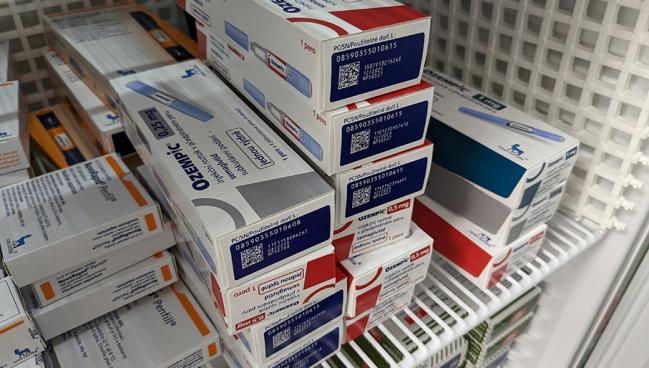GLP-1 Meds Linked to 265 Reports to FDA of Suicidal Ideation: Reuters
The FDA says it is looking into reports related to semaglutide and liraglutide, branded for weight loss and diabetes.

Since 2010, the US Food and Drug Administration has received 265 reports of suicidal ideation in patients taking a glucagon-like peptide 1 (GLP-1) receptor agonist marketed for diabetes or weight loss, a Reuters analysis has found.
Moreover, Novo Nordisk, the manufacturer of semaglutide (Wegovy/Ozempic) and liraglutide (Saxenda/Victoza), was responsible for filing 180 of the reports to American regulators. Tirzepatide (Mounjaro), the GLP-1 receptor agonist sold by Eli Lily, also was named in the adverse event reports.
Demand for GLP-1 receptor agonists is soaring, particularly for weight loss, with cardiologists excited about the implications for cardiovascular health. Top-line results from the SELECT trial were released last month showing that semaglutide 2.4 mg reduces the risk of major adverse cardiovascular events in adults with overweight or obesity; full findings are due out at the upcoming American Heart Association 2023 Scientific Sessions in Philadelphia, PA.
According to Reuters journalists Robin Respaut and Chad Terhune, 36 of the documents filed with the FDA involved deaths due to suicide or suspected suicide. “In a statement to Reuters, the FDA said it is evaluating such reports and will decide on what action, if any, to take after a thorough review,” their news story notes.
As reported by TCTMD, the European Medicines Agency’s Pharmacovigilance Risk Assessment Committee (PRAC) announced in July that it was investigating reports of suicidal thoughts or thoughts of self-harm after three patients taking liraglutide or semaglutide in Iceland reported thinking about suicide or self-injury. Regulators in Canada and the UK are also reviewing the drugs for suicidal ideation, the Reuters article notes.
For their story, Respaut and Terhune filed public records requests to obtain 113 more-detailed descriptions for individual incidents within the 265 database reports. These indicate that suicidal thoughts typically surfaced around the time patients started on the agents, or increased their dosage, as noted in more than half of the “narrative summaries.” One-fifth of these 113 more-detailed summaries—91 of which were filed by Novo Nordisk—mentioned that the suicidal thinking disappeared when patients stopped taking the agent or lowered their dose.
The Reuters story notes that the possibility of suicidal thinking is specifically mentioned in the labelling for the weight-loss drugs Wegovy and Saxenda, but not on the label for Ozempic, which is the brand name of the formulation indicated for diabetes.
Statements from both Novo Nordisk and Eli Lilly cited in the article emphasize that the companies take all reports of adverse events very seriously.
Shelley Wood was the Editor-in-Chief of TCTMD and the Editorial Director at the Cardiovascular Research Foundation (CRF) from October 2015…
Read Full BioSources
Respaut R, Terhune C. Wegovy, other weight-loss drugs scrutinized over reports of suicidal thoughts. Reuters. Published and accessed on: September 28, 2023.





Comments